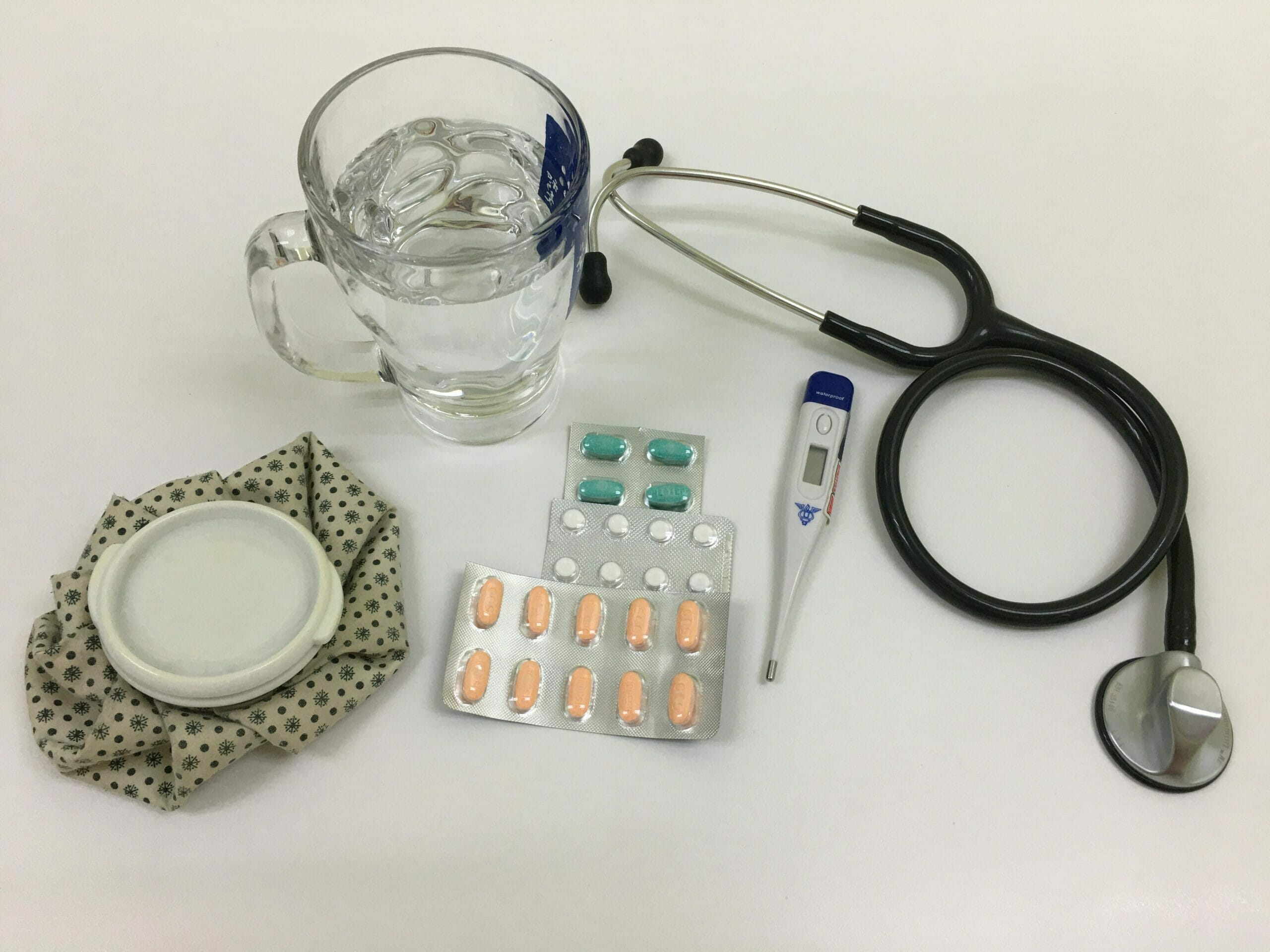Sick leave in Germany

When illness strikes, it’s crucial to prioritize your health and well-being. In Germany, the sick leave system provides employees with important protections and entitlements during periods of illness. Understanding the key aspects of sick leave can help you navigate this process effectively while ensuring your rights are upheld.
In Germany, employees are entitled to paid sick leave for up to six weeks. However, to qualify for sick leave benefits, you must obtain an official sick note, known as ‘Arbeitsunfähigkeitsbescheinigung’ in German, from your doctor. This document serves as proof of your inability to work due to medical reasons.
On average, German employees take around 11 sick days per year, reflecting the importance placed on health and well-being. Importantly, you have the right to take as many sick days as necessary, even during your probation period. Your employer cannot penalize you for taking sick leave.
Who is entitled for sick leave in Germany?
Whether it’s a bout of bronchitis, a broken leg, or burnout, employees in Germany are entitled to continued payment of wages when they are unable to work due to health reasons. This vital support ensures that employees are financially supported during their period of illness. However, it’s essential to understand the specifics of sick leave, including who is entitled to this benefit and the responsibilities of both employees and employers. Let’s delve into the details.
Continued payment of wages refers to the practice of employers paying their employees their full salary during their period of illness or incapacity to work. This entitlement is applicable for up to six weeks for each new illness. However, it is important to note that continued payment of wages only applies if the employee is unable to work solely due to illness or injury and is not at fault for their health condition.
During the initial six weeks of sick leave, employers are obligated to pay their employees their regular wages. This provides financial security and helps employees focus on their recovery without worrying about their income. The payment is typically based on the employee’s average earnings and is subject to the terms and conditions outlined in their employment contract or collective agreement.
It’s important to remember that continued payment of wages does not cover absences unrelated to illness or injury, such as personal vacations or leave for other reasons. Additionally, certain conditions may apply, and specific documentation, such as a doctor’s certificate, may be required to validate the need for sick leave.
What employers and employees should consider
From an employee’s perspective, it is crucial to notify the employer as soon as possible when they are unable to work due to illness. This notification allows employers to make necessary arrangements and plan for the employee’s absence. Employees should also provide any required documentation, such as a doctor’s note or medical certificate, to substantiate their need for sick leave.
On the other hand, employers have a duty to support and assist their employees during their period of illness. This includes respecting their privacy, adhering to legal requirements, and providing necessary documentation for the continuation of wages. Employers may request regular updates on the employee’s health status, expected duration of sick leave, and any relevant medical reports.

How to get sick leave in Germany?
When illness strikes and you find yourself unable to work, it’s important to follow the proper procedures to ensure a smooth sick leave experience. In Germany, notifying your employer and obtaining a sick note are essential steps to protect your rights and receive the necessary support during your recovery.
#1 Notify your employer
As soon as you realize you’re unfit to work, promptly inform your employer. While you’re not legally obligated to disclose the specifics of your illness, your employer may inquire about your expected duration of absence. It’s crucial to determine when your employer requires the submission of a sick note. Some companies may request it on the first day of sick leave, while others may require it after a certain number of days.
#2 Schedule a doctor’s appointment
Arrange an appointment with your doctor, ideally on the first day of your sick leave. German law mandates that doctors assess and verify your symptoms on the initial day to issue a sick note. In exceptional cases where the doctor’s office is closed on the first day, they may provide a retroactive sick note.
#3 Obtain a sick note
The sick note, known as the Arbeitsunfähigkeitsbescheinigung, is issued by your doctor and includes information such as the expected duration of your inability to work. Since 2023, the sick note is no longer given directly to the patient but is sent from the doctor to your health insurance provider. Your health insurance will then forward the relevant document to your employer.
#4 Importance of obtaining a sick note
It is advisable to obtain a sick note, even if you anticipate being unwell for just a day or two. While contractual obligations for providing a sick note typically apply for illnesses lasting more than three days, circumstances may change, and you may require proof of your illness for a longer duration. Additionally, some companies may require a sick note even after one day of sick leave, so it’s best to consult your employer for specific requirements.
#5 Long-term sick leave
If your illness persists beyond six weeks, your employer will cover the initial period of continuous sick leave. After this period, your health insurance provider assumes responsibility for the costs. If you experience multiple instances of sick leave for the same illness within a year, the days will be accumulated. You may be eligible for Krankengeld, commonly referred to as “sick money,” which entitles you to receive up to 90 percent of your wage after taxes for a maximum of 72 weeks.
Burnout sick leave in germany
Burnout has become an increasingly prevalent issue in today’s fast-paced and demanding work environments. In Germany, recognizing the impact of burnout on employees’ health and well-being, the system allows for sick leave specifically tailored to address this condition. Let’s explore the key aspects of burnout sick leave in Germany.
How does burnout manifest itself?
Burnout is characterized by emotional, mental, and physical exhaustion resulting from chronic work-related stress. It can manifest as feelings of overwhelming fatigue, cynicism, detachment from work, and reduced professional efficacy. Recognizing the severity of burnout as a legitimate health concern, German employment laws offer provisions for employees to take sick leave specifically for this condition.
How do you take a sick leave because of burnout?
To qualify for burnout sick leave, employees must consult with a medical professional, typically a general practitioner or a psychiatrist. The medical professional will evaluate the employee’s symptoms, consider the impact of work-related stress, and provide a diagnosis. It’s important to note that burnout is considered a medical condition and requires a formal diagnosis for sick leave purposes.
Once diagnosed, employees can follow the regular sick leave procedures outlined by their employers. This includes notifying their employer about the need for sick leave, providing relevant medical documentation, and adhering to any specific policies or procedures in place. The duration of burnout sick leave will vary depending on the severity of the condition and the recommendations of the medical professional.
Will I continue to receive wages?
During the burnout sick leave period, employees are entitled to continued payment of wages as per the standard sick leave regulations in Germany. Employers are obligated to pay their employees their regular wages during this time to ensure financial stability and support the employee’s recovery process. The specific details regarding payment and duration of burnout sick leave can be outlined in the employment contract or collective agreement.
It’s crucial for employees to focus on their well-being during burnout sick leave. This may involve engaging in therapeutic activities, seeking counseling or therapy, and implementing self-care practices to promote physical and mental well-being. Employers should respect the privacy of employees on burnout sick leave and provide a supportive and understanding work environment upon their return.
Ways to avoid burnout
Preventing burnout in the workplace is also a shared responsibility. Employers can promote a healthy work-life balance, encourage open communication, and implement strategies to reduce excessive workload and stress. Employees, on the other hand, should prioritize self-care, set boundaries, and seek support when needed to prevent burnout.

Meeting deadlines: Reporting sick leave in Germany
In the context of sick leave in Germany, meeting deadlines is crucial for both employees and employers. By adhering to the specified timelines, both parties can ensure a smooth and compliant process. Failure to do so can have significant consequences.
As a team member, it is essential to promptly report your incapacity for work within the designated timeframe. This means notifying your supervisor or the HR department as soon as you become aware of your inability to work. Timely communication is key to ensuring that the necessary steps can be taken to address your absence.
Additionally, obtaining a medical certificate from a doctor is vital, especially from the third day of your illness. This certificate serves as proof of your incapacity for work and is required to support your claim for continued payment of wages during your absence. Failing to provide a medical certificate within the prescribed timeframe may result in being considered absent without cause.
If you do not meet the reporting and documentation requirements, you will not be entitled to continued payment of wages in the event of illness. This means that your employer will not be obligated to pay your salary or wages for the duration of your absence.
Can I be terminated if I am often sick?
Taking care of your health is crucial, but it’s essential to be aware of the potential consequences of frequent absences due to illness. While employers in Germany must provide paid sick leave for up to six weeks, excessive absenteeism can raise concerns for your job security.
If you exceed 30 sick days within a year, your employer may initiate termination proceedings.
However, it’s important to note that your employer must demonstrate specific circumstances to justify this action. They must show that your condition is unlikely to improve, that your extended absence significantly impacts the company’s operations, and that reasonable alternatives, such as job transfers or reduced working hours, are not feasible.
Integrity plays a vital role when it comes to sick leave. Falsely claiming illness to take unauthorized time off can have serious consequences, including termination. It is crucial to be honest and transparent about your condition. If you falsely report being too ill to work but engage in activities inconsistent with your claimed condition, such as attending social events or participating in physically demanding activities, it can be seen as a breach of trust and may lead to dismissal.

When does the employer not have to continue to pay sick leave?
Employers are not obligated to continue paying salaries if the employee’s illness or accident was self-inflicted, such as through intent or gross negligence. The determination of whether this applies is made on a case-by-case basis, guided by legal precedents.
Examples of situations where the employer may not have to pay wages include:
- A car accident resulting from a gross violation of traffic regulations.
- Injuries sustained during a self-initiated physical altercation.
- Accidents arising from engaging in a dangerous second job.
Sick pay provided by the health insurance fund
In cases of severe illness or injury that prevent an employee from working for more than six weeks, the statutory health insurance (GKV) provides sick pay. This begins from the seventh week or the 43rd day, when the employer’s obligation to pay wages ceases.
Insured individuals can receive sick pay for the same illness for up to 78 weeks within a three-year period, as long as there is no interruption in their inability to work.
The amount of sick pay is typically 70% of gross earnings, with a cap of 90% of net revenues.
Automatic entitlement to sick pay applies to those with compulsory statutory insurance. However, individuals with voluntary statutory or private insurance may need separate sick pay insurance coverage.
Applying for sick pay is not required separately. The health insurance company proactively contacts the employee and employer to discuss the necessary procedures and provide guidance.
pany contacts the team member and employer in good time and clarifies the further procedure.

Conclusion: Sick pay in Germany
The regulations surrounding continued payment of wages in the event of illness in Germany ensure that employees are supported during periods of incapacity to work. The entitlement to continued payment of wages provides financial stability and helps individuals focus on their recovery without worrying about lost income.
It’s important to understand the criteria for continued payment of wages and the responsibilities of both employees and employers. Employees must promptly notify their employers of their incapacity to work and provide the necessary medical documentation. Adhering to reporting deadlines and maintaining open communication can help avoid complications and ensure a smooth process.
Employers, on the other hand, have a legal obligation to continue paying wages for a specified period of time, typically six weeks. However, they may be exempt from this responsibility if the illness or injury was self-inflicted or caused by gross negligence.
Throughout the period of continued payment of wages, employees are entitled to receive their full salary, including any variable components such as commissions or bonuses. However, certain additional benefits like vacation pay or Christmas bonuses are not provided during incapacity for work.
The entitlement to continued payment of wages ceases at the end of the employment relationship, regardless of whether it was terminated by the employer or the employee. Exceptions may apply if the termination is related to the employee’s incapacity for work or if it occurs during a mutually agreed termination process.
By establishing these regulations, the legislature aims to protect employees from unjust terminations due to illness and ensure that employers fulfill their financial obligations. Understanding these provisions is crucial for both employees and employers to maintain a fair and supportive work environment.





